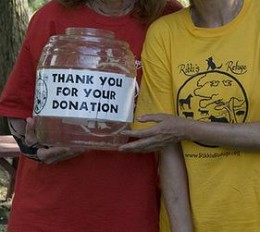The Wealth We Have to Give

Greed is a suit that’s tailor made: it finds a way to fit every lifestyle, no matter how much or how little you earn. It will always be easier to look at the super-rich and pity ourselves than it will be to look at the super-poor and realize how much we have to give. The economic tide may be raising the yachts higher and higher, but even those of us in dinghies and lifeboats can help the billions who are drowning.
It’s uncomfortable to say this in a time of economic uncertainty for this country, when many are unemployed and others are underemployed, but there are still many of us whose poverty is mostly imagined: we struggle to pay for the lifestyles we think we deserve when billions struggle to live. The inconvenient truth is that most of us have more than we need and spend more than we should.
For me, charity has always been tied to tithing, not the scraps that remain when I’ve paid my bills and put some money towards my debts, but 10 percent off the top of whatever I make. I find that if I don’t put money aside as soon as I have it, then there’s always a way to justify not donating it. My conviction to donate, whether it’s to my church or the Red Cross, is a religious one, but it needn’t be.
That’s Casey Cep on giving to charity, who argues that it’s easy to rage against the one percent and equally as easy to forget that their greed is just a magnification of our own — that the rich can afford to do more with their billions, but that some of us could probably afford to do a little more too (and yes, some of us truly can’t afford to give more, and that’s fair). Basically, we’re all on this together.
Photo: Rikki’s Refuge
Support The Billfold
The Billfold continues to exist thanks to support from our readers. Help us continue to do our work by making a monthly pledge on Patreon or a one-time-only contribution through PayPal.
Comments